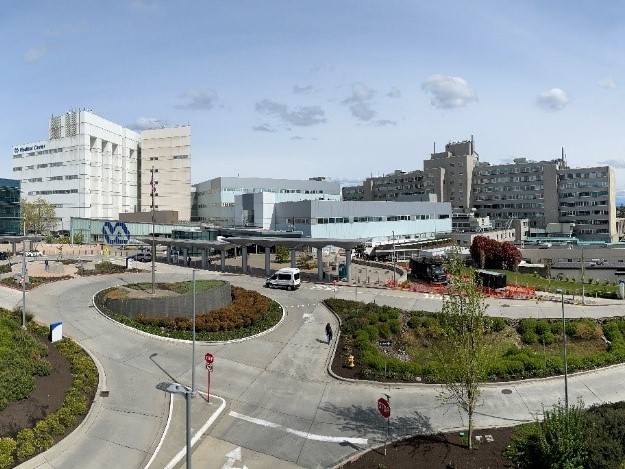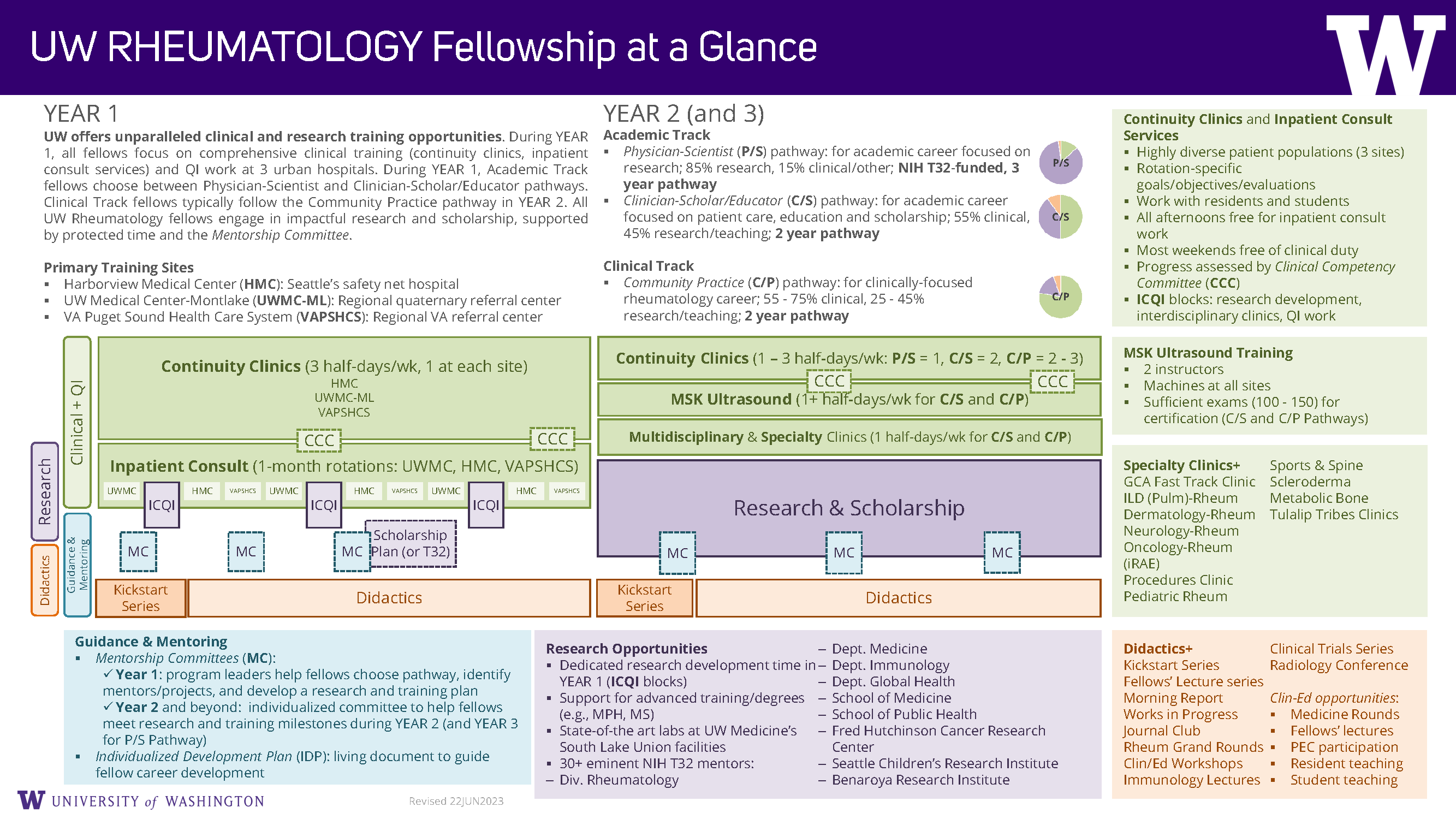RHEUMATOLOGY fELLOWSHIP tRAINING AT A GLANCE
Your 2-3 years of fellowship training contain a number of opportunities for clinical exposure, research training, and scholarship.
Clinical Training
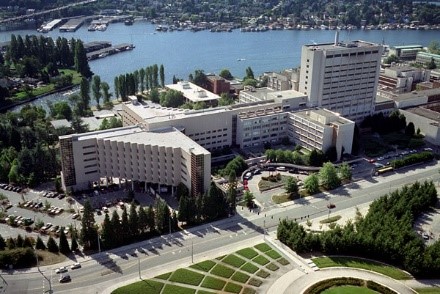
UWMC-Montlake Medical Center
U.S. News & World Report's No. 1 hospital in Washington State, and one of the nation's leading academic medical centers, providing care for patients from Washington, Wyoming, Alaska, Montana, and Idaho.
learn more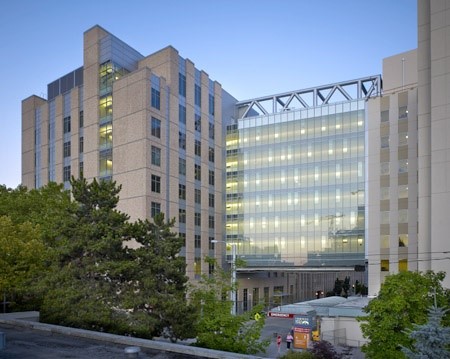
Harborview Medical Center
A comprehensive Level I adult and pediatric trauma healthcare facility dedicated to providing specialized care for patients throughout the Pacific Northwest, including the most vulnerable residents of King County.
learn more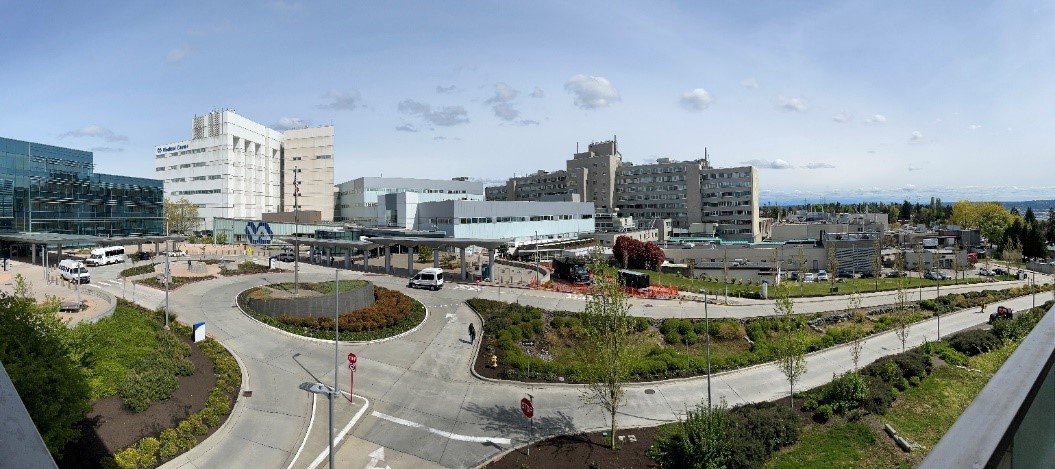
VA Puget Sound Medical Center
The primary referral site for the VA's northwest region, VA Puget Sound provides care for Veteran populations encompassing Alaska, Montana, Idaho, and Oregon and serves a diverse group of more than 125,000 Veterans.
learn more- Continuity Clinics First-year fellows maintain one half-day continuity clinic at each of the three training hospitals for a comprehensive outpatient experience. Depending on pathway, second-year fellows maintain between 1 and 3 continuity clinics at the site(s) of their choosing.
- Inpatient Consult Service First-year fellows have 9 months of inpatient consult service - 3 months at each teaching hospital, occurring in month long blocks.
- Telemedicine All fellows are credentialed and trained in delivering care via telemedicine, an essential service during COVID-19 and for our patients with limited mobility or who live in the WWAMI* referral region (*Washington, Wyoming, Alaska, Montana, Idaho).
- Musculoskeletal Ultrasound (MSK-US) Depending on training pathway, second-year fellows can pursue comprehensive MSK-US training (100 – 150 proctored exams) sufficient for ACR certification.
- Multidisciplinary Clinics Second-year fellows rotate through rheumatology combined clinics with dermatology, neurology (neuromuscular disease), and pulmonology (interstitial lung disease).
- Specialty Clinics Second-year fellows rotate through clinics for metabolic bone disease, physical medicine & rehabilitation, and pediatric rheumatology (at Seattle Children’s Hospital).
- Outreach Clinics Second-year fellows on the Clinical Practice Pathway provide rheumatology care at the Tulalip Tribes Clinics (north of Seattle).
- Clinical Trials Second-year fellows on the Clinician-Scholar or Clinical Practice Pathways may pursue focused, hands-on training in clinical trials work.
- Quality Improvement First-year fellows participate in the GME Quality Improvement and Patient Safety training workshops and mentored projects commensurate with their career goals.
Mentoring and Career Guidance
- Mentorship Committee A small committee of physician-scientist and clinician-scholar faculty members meets regularly with first-year fellows to help identify a training pathway and career-appropriate mentors and scholarship/research projects.
- Career Development Committee (CDC) In the second (and third) year of training, a carefully chosen group of faculty members (including the fellow’s mentor) meets 2 – 3 times yearly to offer high-level guidance toward career development milestones.
- Individualized Development Plan (IDP) A living document maintained by each fellow to record career goals, action plans, and committee recommendations.
Didactics
- Kickstart lecture series First-year summer lecture series covering core topics in rheumatology
- Fellow’s lecture series 24-month lecture series covering a broad range of rheumatology topics
- MSK-Ultrasound Second-year summer lecture series covering principles of MSK-ultrasound
- Clinician Educator Workshop Series of workshops for fellows and faculty designed to build clinical education skills and knowledge
- Rheumatology Case Conference Monthly informal case conference with faculty and fellows to discuss difficult cases
- Radiology Conference Monthly virtual case conference facilitated by MSK radiology faculty
- Rheumatology Grand Rounds Monthly conference highlighting local, national and international experts in rheumatology research and care
- Journal Club Twice-monthly sessions discussing high-impact publications in rheumatology research and care
- Morning Report Periodic morning report style discussion of challenging and educational cases facilitated by a faculty member
- Bruce Gilliland, MD Immunology Lecture Series Annual lecture series focusing on topics in clinical immunology
- Works in Progress Fellows, faculty, and research staff present their research / scholarly projects.






